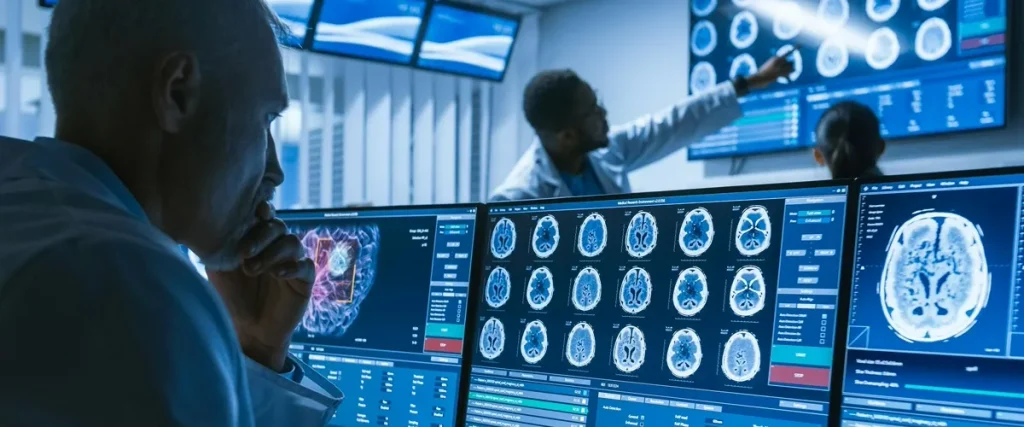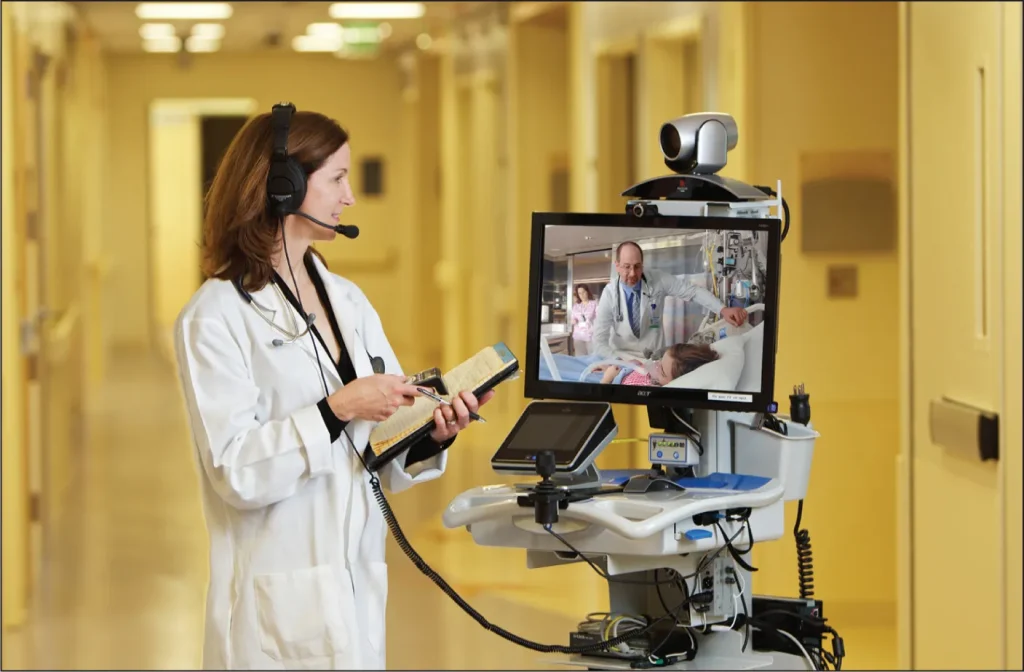AI-Driven Healthcare: China’s Emerging Hospital Tech
Artificial intelligence (AI) is increasingly transforming healthcare in China, reshaping hospital operations, diagnostics, treatment planning, and patient management. By leveraging advanced algorithms, big data analytics, and machine learning models, hospitals are improving efficiency, enhancing clinical accuracy, and delivering more personalized care. This integration of AI into healthcare infrastructure aligns with China’s broader objectives of technological innovation, digital economy development, and enhanced public health outcomes.
Policy and Strategic Context
The Chinese government has emphasized the integration of AI in healthcare through strategic policy initiatives, including the “Healthy China 2030” plan and national AI development programs. Policies prioritize research in intelligent diagnostics, predictive analytics, telemedicine, and smart hospital management systems. Funding support, regulatory guidance, and infrastructure investment have accelerated pilot projects in major urban hospitals, enabling scalable AI solutions. These initiatives ensure alignment between technological innovation, clinical standards, and public health objectives.
AI in Diagnostics and Imaging
One of the most impactful applications of AI in Chinese hospitals is in medical imaging and diagnostics. Machine learning algorithms analyze X-rays, CT scans, and MRI images with high precision, identifying anomalies such as tumors, fractures, or organ irregularities that might be missed by human observers. AI systems provide decision support for radiologists, suggesting likely diagnoses, measuring tumor size, or tracking disease progression. Early detection and improved diagnostic accuracy enhance patient outcomes, reduce treatment costs, and streamline hospital workflows.

Predictive Analytics and Patient Management
AI-driven predictive analytics enables hospitals to anticipate patient needs, optimize resource allocation, and improve care efficiency. Algorithms analyze patient data, historical trends, and population health indicators to forecast admissions, identify high-risk cases, and prioritize interventions. For example, predictive models can flag patients at risk for chronic conditions, enabling early intervention and reducing hospital readmissions. These tools enhance patient management, improve operational planning, and ensure that healthcare resources are deployed effectively.
Smart Hospital Operations
AI technologies streamline hospital operations beyond clinical diagnostics. Intelligent scheduling systems optimize staff deployment, surgical room utilization, and patient appointments. Robotic process automation handles administrative tasks, such as billing, record-keeping, and insurance claims, reducing human error and freeing personnel for patient care. Integration with IoT devices provides real-time monitoring of equipment, medication inventories, and patient vitals. By enhancing operational efficiency, AI contributes to cost reduction, faster service delivery, and improved patient satisfaction.
Telemedicine and Remote Care
AI integration supports telemedicine services, enabling remote consultations, virtual diagnosis, and patient monitoring. In rural or underserved areas, AI-assisted telehealth platforms connect patients with urban hospitals, providing access to expert care without the need for travel. Natural language processing and machine learning algorithms facilitate patient triage, symptom analysis, and virtual guidance. These technologies expand healthcare accessibility, improve continuity of care, and address disparities in medical service availability.
Clinical Decision Support and Personalized Treatment
AI-driven clinical decision support systems assist physicians in developing personalized treatment plans. Algorithms analyze patient histories, genetic information, and treatment outcomes to recommend optimized therapeutic approaches. This supports evidence-based medicine, reduces variability in care quality, and enhances precision in treatment delivery. Hospitals implementing AI for personalized care demonstrate improved patient outcomes, particularly in complex cases such as oncology, cardiology, and chronic disease management.
Data Security and Ethical Considerations
The integration of AI in healthcare raises critical considerations regarding data privacy, security, and ethical use. Hospitals implement robust cybersecurity measures, encryption protocols, and access controls to safeguard sensitive patient data. Ethical frameworks guide AI deployment, ensuring transparency, accountability, and equitable treatment. Compliance with national regulations, including the Personal Information Protection Law (PIPL), ensures that AI applications uphold patient rights while enabling technological advancement.
Collaborations and Innovation Ecosystem
AI-driven healthcare in China benefits from collaboration among hospitals, technology companies, research institutions, and government agencies. Partnerships support R&D, pilot testing, and commercialization of AI solutions. Startups develop specialized diagnostic tools, predictive models, and hospital management software, while academic institutions conduct research to validate efficacy and improve algorithms. These collaborative efforts accelerate innovation, enhance technological adoption, and create a sustainable ecosystem for AI in healthcare.
Challenges and Future Outlook
Despite significant progress, challenges remain in scaling AI in healthcare. Integration with legacy hospital systems, workforce training, regulatory compliance, and model interpretability require careful management. Ensuring equitable access to AI-enhanced healthcare, particularly in rural areas, is essential for maximizing societal benefit. Future developments include integrating AI with robotics for surgical assistance, advanced telehealth platforms, and predictive public health modeling. Continued investment in infrastructure, talent, and governance frameworks will drive the next phase of AI adoption in healthcare.
Conclusion: Transforming Healthcare with AI
AI-driven healthcare represents a transformative evolution in Chinese hospital technology. By enhancing diagnostics, predictive analytics, patient management, and operational efficiency, AI improves patient outcomes and optimizes resource utilization. Collaborative ecosystems, regulatory alignment, and ethical frameworks ensure that innovations are safe, scalable, and socially responsible. As China continues to integrate AI into healthcare systems, these technologies will redefine medical care, enhance accessibility, and position the country as a leader in digital health innovation globally.





